David Lynch: from worst to best
Damn fine movies
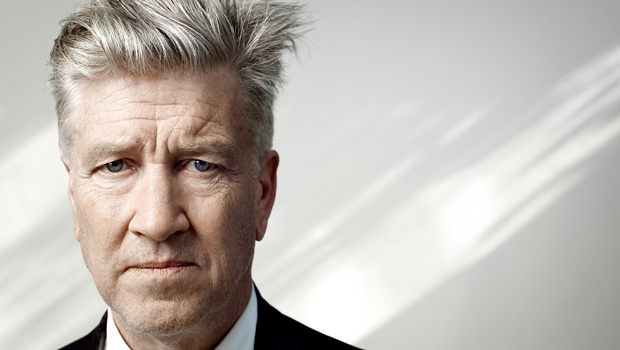
And relax... David Lynch has returned to direct the new (now longer!) season of Twin Peaks . All is right with the world.
In celebration, we decided to look back at the mighty quiff's distinguished feature film career and rank them from worst to best. From 1977 to 2006, Lynch made 10 movies filled with sex, sadism, disintegrating realities, terrifying figures lurking behind bins and quite a few songs. All of his films are interesting though we're pretty sure you'll guess what's at number 10...
10: Dune (1984)
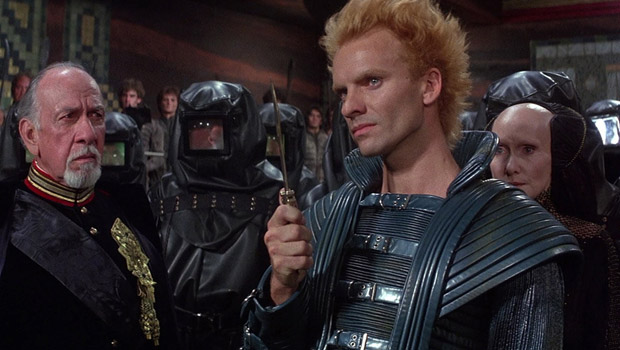
Proof that even geniuses sometimes make mistakes, Lynch's adaptation of Frank Herbert's totemic science fiction classic is a mess. It's grandiose, sure, but its vast budget couldn't stop it from being muddled and incoherent.
Partially that's down to the film's many cuts. Lynch was aiming for a three-hour running time, but his first cut arrived at four hours. It was then hacked down to a more standard two. He was so depressed by the experience he took an Alan Smithee credit and distanced himself from the film.
All of that said, it's not a complete disaster. The cast is generally good, there are some innovative effects and it is, at the very least, quite unlike other science fiction films of the period. Lynch may regret making Dune, but it's a noble failure.
9: Wild At Heart (1990)
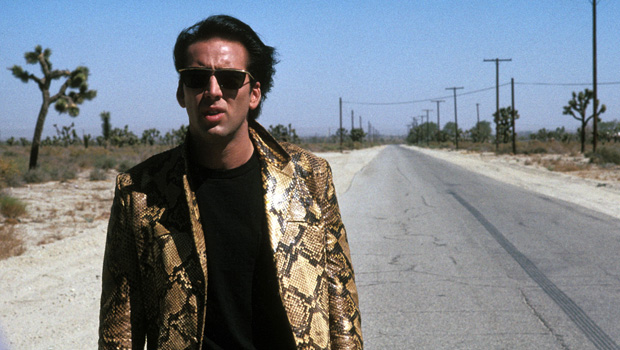
It may be the weak link in Lynch's '90s work, but Wild At Heart is no disaster.
Sailor (Nicholas Cage) breaks parole and goes on the run with his lover Lula (Laura Dern), while Willem Dafoe's Bobby is hired to kill him. A violent, sometimes absurd, melodrama of the type that Lynch does so well, it's more conventional than the films that followed it (though Lynch still manages to weave in musical numbers and Cage gives a characteristically barking performance).
Sign up to the SFX Newsletter
Get sneak previews, exclusive competitions and details of special events each month!
Still, it's as visually attractive as you'd expect and the film certainly impressed the Cannes committee it won the prestigious Palme d'Or that year.
8: Inland Empire (2006)
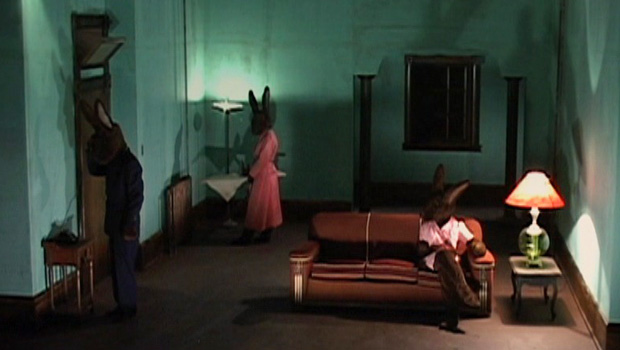
To date, Lynch's final full-length film. It's also one of his chewiest and most inpenetrable. Strict adherents to conventional narrative may find this tale of an actress (Laura Dern) losing herself in a role, an ill-fated Polish film and, er, rabbit soap operas too much especially given its three hours running time. The film's chronology is jumbled up and the whole thing is shot on pig-ugly digital video. It's certainly a long way from those lush, swaying pines.
Still, it provides moments of real brilliance not least in Dern's mesmerising performance. It also stands as a testament to just how far Lynch is willing to take his art. It feels like the natural end point of the increasingly abstract films he'd been making since Lost Highway. Not an easy watch, but every Lynch fan should watch it at least once.
7: Lost Highway (1997)
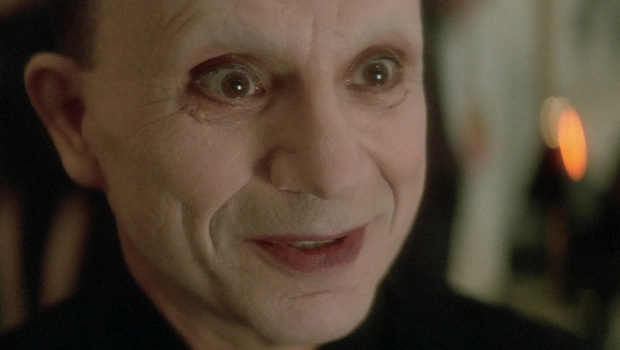
Lost Highway is divisive. Some fans utterly loathe it, while others see it as the director's best. We think it's good, but not quite up there with the likes of Blue Velvet.
Bill Pullman plays a man accused of the murder of his wife (Patricia Arquette) and yet she still seems to be alive. This is the point where Lynch finally unshackles himself from the constraints of traditional story structures and goes full on bizarro. Characters shift and warp. Robert Blake is bizarrely frightening as the appropriately named Mystery Man and it's shot through with sudden moments of brutal violence. Not as assured as his next film, Mulholland Drive, but it's still a trip worth taking.
6: Eraserhead (1977)
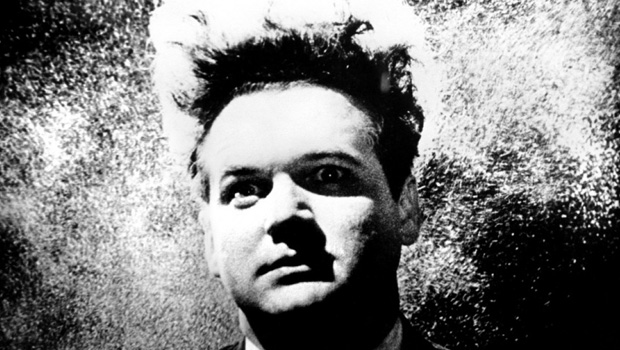
Lynch's feature debut took years to make and was a commercial flop but in its long afterlife it has become perhaps the ultimate cult movie. It's easy to see why: it's mixture of lo-fi industrial sci-fi and body horror was always going to attract a dedicated audience, while Lynch also sets out some of his key recurring elements with dreams and songs playing their part. Indeed, the sound design is quite remarkable, imbuing this nightmarish vision with a sense of the uncanny that lingers in your dreams long after it's finished.
5: The Elephant Man (1980)
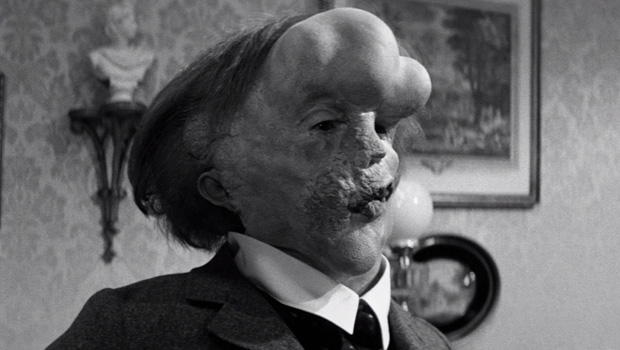
Nominated for eight Oscars (though it failed to win a single one), this is Lynch at his most populist. John Hurt plays John Merrick the disfigured elephant man. Considered an imbecile (but actually highly intelligent), Merrick lives as a circus freak in Victorian London.
Based on Frederick Treves's book The Elephant Man And Other Reminiscences, it's a powerfully moving piece of work. Filmed in black and white, it feels out of step with other films from the period, yet that also makes it somehow timeless. Anthony Hopkins co-stars, but is overshadowed by Hurt's compassionate performance. Beautiful and heartbreaking.
4: The Straight Story (1999)
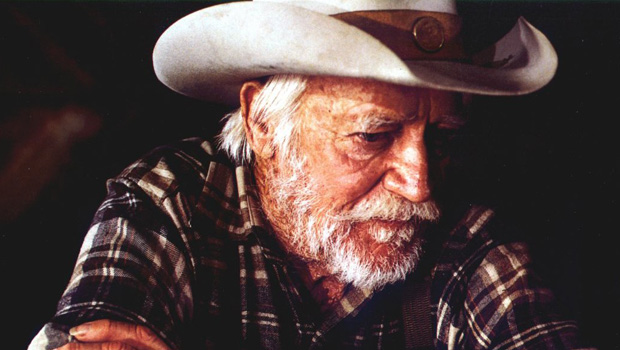
On some levels, The Straight Story is an anomaly in Lynch's filmography. Why? Well, it's just so... straight.
The true story of Alvin Straight is remarkable enough to not require any surreal embellishment. When Straight discovered that his brother was dying of cancer, he set off across country using the only vehicle he had: a big ol' lawnmower. The result is a film that's deeply heartfelt, beautifully played by all involved especially Richard Farnsworth, in his final role and was, naturally, all but ignored on release. It's not the archetypal Lynch film, but it's certainly among his best.
3: Twin Peaks: Fire Walk With Me (1992)
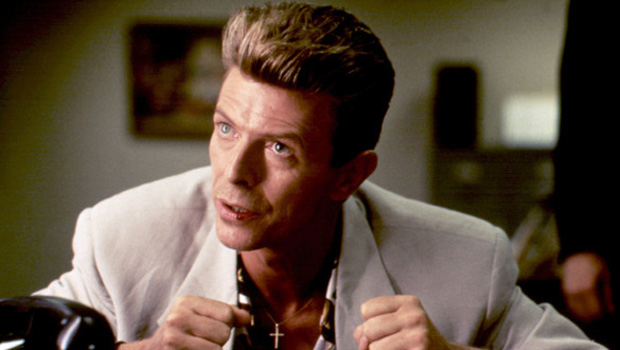
Putting Fire Walk With Me so high in this list is bound to rankle some, but it's a film that seems to improve with every passing year.
A critical and commercial flop on release, it also irritated fans of the TV show by all-but-ignoring that cliffhanger. Today though, its many qualities shine through.
Where the show examined the death of Laura Palmer, Fire Walk With Me shows us how she lived, while also furthering aspects of Twin Peaks lore. It has a remarkable soundtrack by Angelo Badalamenti and the scenes in the Pink Room are remarkably visceral, especially on the big screen.
The film takes an unflinching look at the impact of abusive relationships, but there's a deep vein of compassion and love there too. Lynch wants us to remember that beneath the coffee and cherry pie, Twin Peaks is the story of a murdered girl, and those final scenes in the train car are almost unbearably sad. Plus it's got Chris Isaak AND David Bowie in it. Weirdo pop heaven.
2: Blue Velvet (1986)
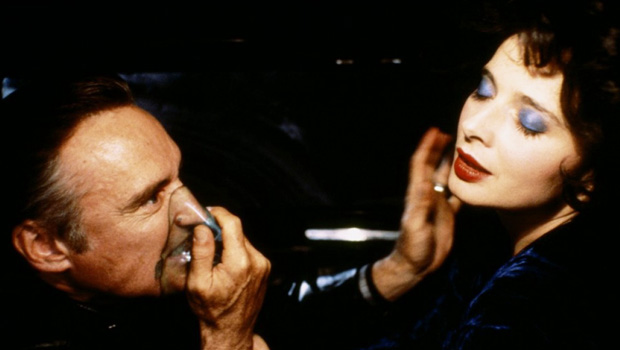
The film that cemented Lynch as Hollywood's finest vendor of small town weirdness. Jeffrey (Kyle MacLachlan) returns home, only to stumble upon a sinister mystery. He's drawn to Isabella Rossellini's troubled Dorothy and incurs the wrath of the terrifying Frank Booth (Dennis Hopper) one of '80s cinema's most uniquely repellant monsters.
The film's success certainly came at the right time for Lynch, following the Dune disaster and over the years its reputation has only grown. It's also a clear forerunner of Twin Peaks, which would see Lynch revisit many of the same actors (Kyle MachLachlan, Laura Dern, Jack Nance) and themes (the darkness under the skin of civilisation, sexual violence).
1: Mulholland Drive (2001)
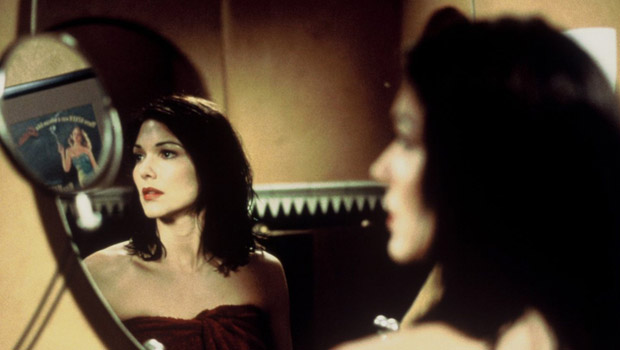
Originally intended as Lynch's return to television, Mulholland Drive instead became his most rewarding film. The tale of aspiring actress Betty (Naomi Watts) losing herself (in numerous ways) in LA, it launched Watts' career and bagged awards by the plenty. Small wonder it's a sumptuous feast for the eyes and the brain.
Once again we're on familiar thematic territory fluidity of identity and sexuality being key here and again the narrative is far from straightforward. But it's handled so skilfully, you don't get lost along the way. It feels like the film that Lynch's career was always building towards and is a clear descendant of Blue Velvet and Lost Highway.
Lynch shot a pilot for ABC, but the network hated its open-endedness. Initially dispirited, Lynch soon came to see the benefits of reforging it as a film. Good thing too it's his masterpiece.


